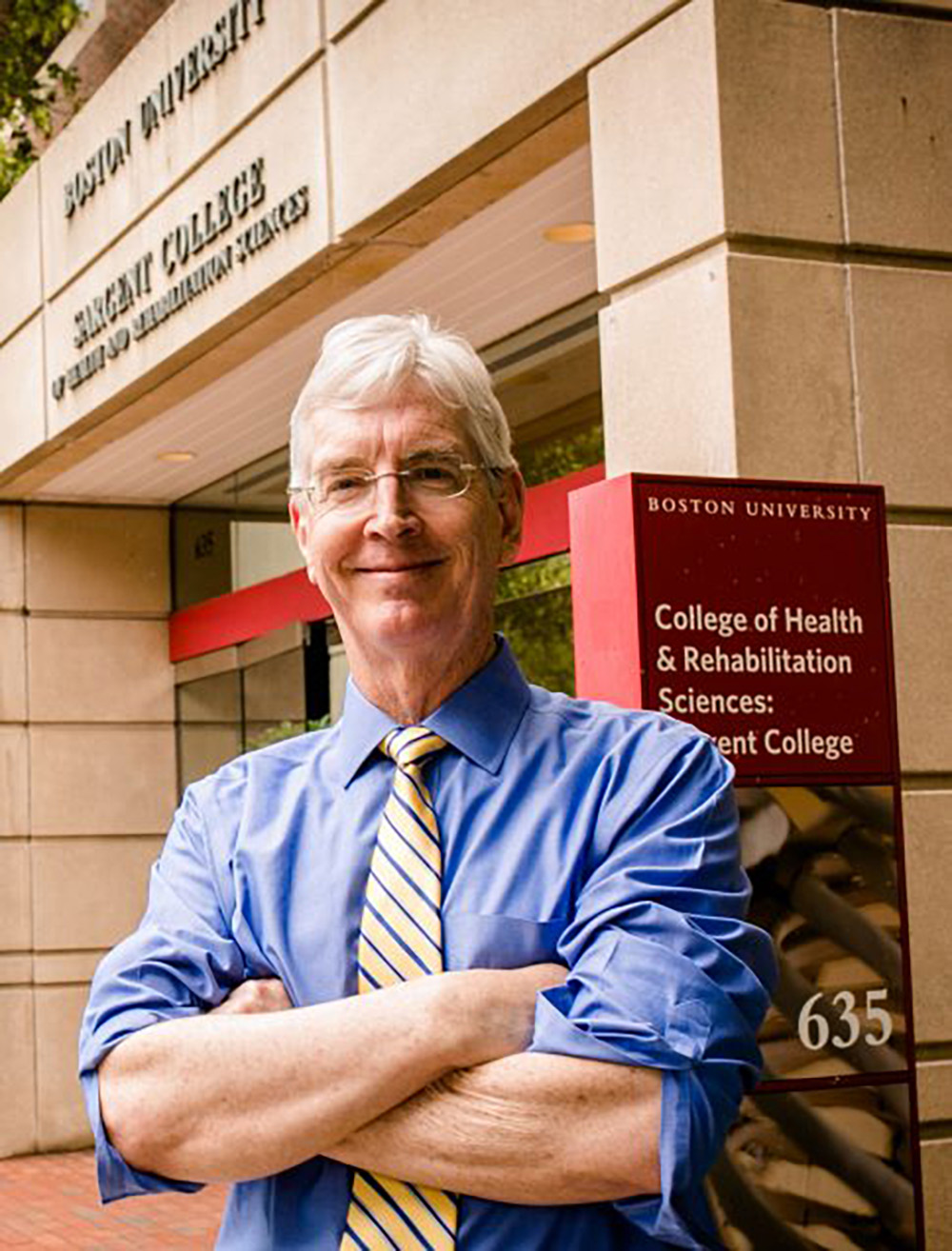
After nine years in the position, Christopher Moore, the dean of Sargent College of Health and Rehabilitation Sciences, will retire at the end of the academic year.
During Moore’s tenure, Sargent grew to more than 1,800 students and now has graduate programs that all rank in the top 20 nationwide, with the occupational therapy program ranked first in the nation.
Moore said it is time for him to retire since Sargent is in “really good shape.”
“This wouldn’t have been something that I could have thought of during the pandemic.” Moore said. “I don’t think you leave an operation when it’s facing such a huge challenge, but now things are very stable.”
Simone Gill, an associate professor in Sargent’s Department of Occupational Therapy, said during Moore’s tenure, Sargent saw big changes.
“He’s allowed for huge growth and expansion in Sargent College. ” Gills said. “I’ve seen lots of growth in the areas of research”
Moore said the main reason he is retiring is to be closer with his family members who all live within 30 minutes of each other in Seattle.
“That’s five grandchildren, eight grand dogs, four kids and their spouses and my 95-year-old mom. So they’re all there. I’m here. My wife is even out there now.” Moore said. “It’s just gotten harder to be apart from them, especially after the pandemic lockdown.”
Moore said it is time for somebody else to have the opportunity to be dean of Sargent.
“I’m almost 67 years old,” he said. “That’s enough of a run for anybody and it’s time for somebody else to have a chance at this really great job.”
The new classrooms, labs and resources available to Sargent students are all things Moore said he is prideful of.
“The classrooms in Sargent are state of the art,” he said. “We have a new center for simulated clinical learning. I’m very proud of that.”
Moore said Sargent has received a grant for the past seven years from the National Institute of Health which funds the education of eight doctoral and four post-doctoral students.
“Those seem like small numbers, but in our disciplines, those are actually significant and make a big difference in who comes here and what their impact is on their disciplines,” Moore said.
According to Moore, the most important aspect of Sargent is its community.
“We have assembled this incredible team of not just faculty and clinicians, but also staff and post doctoral fellows, doctoral students, our graduate students and undergraduates,” Moore said. “It’s a very strong organization in terms of everyone being focused, being highly capable in what they’re doing.”
Gills said she appreciated how Moore put effort into knowing his staff and supporting them and that he will be missed.
“He just always had this welcoming, easygoing laid back way of interacting, which I really will miss.” Gills said.
Julie Saito, a freshman in Sargent, said she will miss Moore’s as a “familiar face.”
“He’s very kind, he’s an approachable person,” Saito said.
Hillary Gomez, a senior in Sargent, said she would like the new dean to get to know the students more.
“I definitely want the new dean to make more appearances for students,” Gomez said.
Moore said he hopes Sargent students will continue to “embrace our mission to improve the human condition.”
“Recognize that there are so many different ways to contribute where we need people to contribute,” Moore said. “Follow the way your own ambitions, your own capabilities and your own interests take you.”




